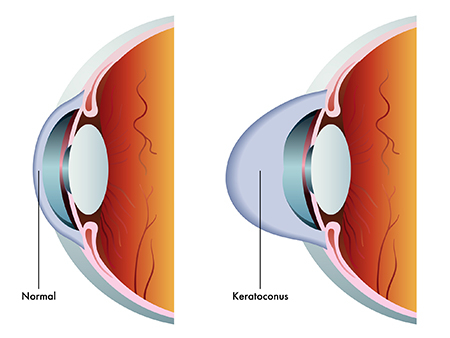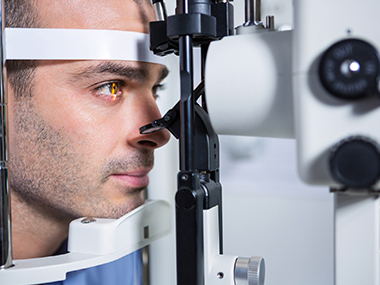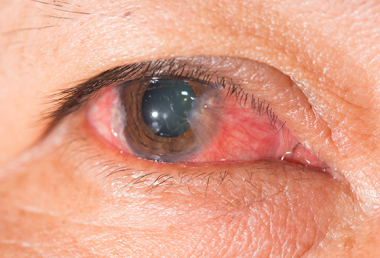
Not all patients will experience keratoconus symptoms right away.
In fact, it can progress over a 10-20 year period and result in symptoms such as:

Corneal transplant technology has come a long way. Today, rather than having a full corneal transplant, some patients are benefitting from Descement’s Stripping Automated Endothelial Keratoplasty (DSAEK) surgeries.
Also known as a partial thickness corneal transplant, the surgery involves replacing only the damaged section of the back inner layer of the cornea. Healthy donor tissue from an eye bank is also used for this procedure.
Full corneal transplants require that a patient’s entire cornea be removed and replaced with a donor cornea from an eye bank. While this method is very successful for restoring vision in patients with severe corneal damage, the surgery requires sutures to keep the new cornea in place, resulting in a long recovery time and greater potential for complications.
Pterygium is a noncancerous growth that looks like a raised white/pink tissue on the white of one or both eyes. It is often called surfer’s eye because it tends to affect people who often work or play outdoors, especially surfers.
While not typically a serious condition, pterygium can continue to grow until it covers the cornea, leading to distortion of the cornea (astigmatism) and blurred vision.
Pterygium tends to affect people age 20 to 40 and it is more common in men. There is no single cause of pterygium; however, there are certain conditions that may increase your risk:

Biologic corneal bandage device used by our doctors to promote healing of damaged eye surfaces and treat eye diseases. Prokera helps restore the patient’s cornea and improve the corneal tissue so it can return to a healthier state. Designated for anti-inflammation and anti-scarring; Prokera helps treat eye diseases such as keratitis, corneal scars, chemical burns, moderate-to- severe dry eyes, corneal ulcers, corneal abrasions, and other corneal damage.
PROKERA is a safe, effective treatment provided by a tissue bank regulated by the FDA. The tissue has passed many quality control tests before it is provided to your doctor.